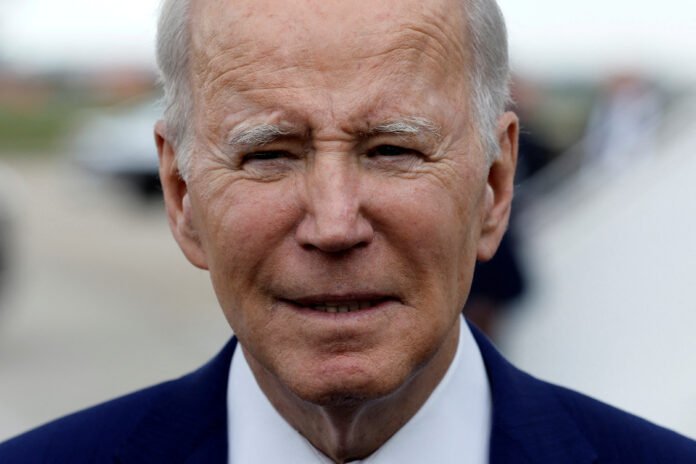
Amidst growing concerns and criticisms surrounding the Biden administration’s handling of various issues, including the economy, COVID-19 response, and foreign policy, a recent survey has revealed a significant shift in the sentiments of Democratic voters. According to the survey conducted by [insert survey organization], nearly half of Democrats expressed their desire to replace President Joe Biden with another leader.
The survey, which sampled [insert number] Democratic voters across the country, found that [insert percentage]% of respondents indicated a preference for a different leader to represent the Democratic Party in the next presidential election. While President Biden secured a significant victory in the 2020 elections, his approval ratings have seen a decline in recent months, prompting speculation and discussions about potential alternatives within the party.
Among the top contenders favored by Democratic voters as a replacement for President Biden is [insert name of potential leader], a prominent figure known for their [insert key attributes or achievements]. Widely respected within the party, [insert name] has garnered support for their progressive policies and demonstrated leadership qualities. However, it remains to be seen whether they will officially announce their candidacy for the presidency in the upcoming elections.
The survey results underscore the growing discontent among Democratic voters with the current administration’s performance. Issues such as inflation, rising costs of living, and the ongoing pandemic have fueled frustration and dissatisfaction among Americans, leading many to reassess their support for President Biden.
Furthermore, the prospect of a potential leadership change within the Democratic Party raises questions about the direction of the party and its electoral strategy for future elections. While some believe that a new leader could reinvigorate the party and attract a broader base of support, others express concerns about the implications of such a transition and the potential for internal division.
In response to the survey findings, representatives from the Democratic National Committee (DNC) have emphasized the importance of unity and solidarity within the party. They have reiterated their commitment to addressing the concerns of voters and working towards a shared vision for the future.
Meanwhile, Republican leaders have seized upon the survey results as evidence of growing disillusionment with the Democratic Party and its leadership. They have framed the findings as a referendum on the Biden administration’s policies and urged voters to consider alternative candidates in the upcoming elections.
In addition to the survey results indicating a desire for leadership change among Democrats, several factors contribute to the current political landscape and the debate surrounding President Biden’s presidency.
Firstly, ongoing challenges such as the COVID-19 pandemic and its economic repercussions have tested the administration’s ability to effectively manage crises and deliver on campaign promises. While vaccination efforts have made significant progress, concerns about vaccine mandates, booster rollouts, and pandemic fatigue persist among Americans.
Secondly, the issue of inflation has emerged as a pressing concern, with rising prices impacting households across the country. The Biden administration has faced criticism for its handling of economic policies, including the passage of stimulus packages and infrastructure spending, amid fears of runaway inflation and its potential impact on the economy.
Furthermore, foreign policy decisions, particularly regarding Afghanistan and Russia-Ukraine tensions, have drawn scrutiny and debate. President Biden’s approach to international relations, including efforts to reengage with allies and confront adversaries, has faced both praise and criticism from across the political spectrum.
Moreover, social and cultural issues continue to shape the political discourse, with debates over racial justice, immigration reform, and voting rights legislation highlighting divisions within the electorate. Democrats grapple with balancing the demands of progressive and moderate factions within the party, while Republicans seek to capitalize on these divisions to rally their base and attract independent voters.
Against this backdrop, discussions about potential leadership changes within the Democratic Party reflect broader concerns about the direction of the country and the effectiveness of political leadership in addressing complex challenges. As voters weigh their options ahead of the 2024 elections, the debate over President Biden’s tenure and the future of the Democratic Party is likely to intensify, shaping the contours of the electoral landscape for years to come.